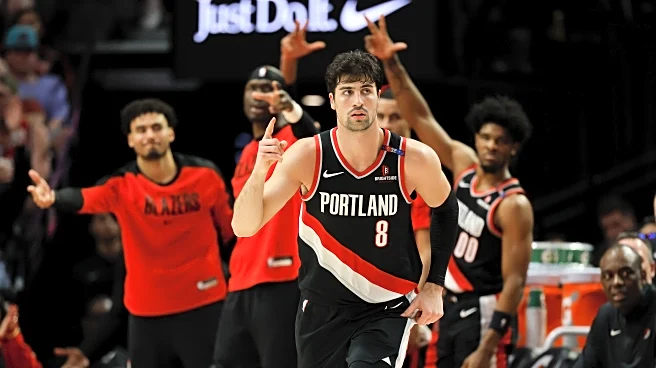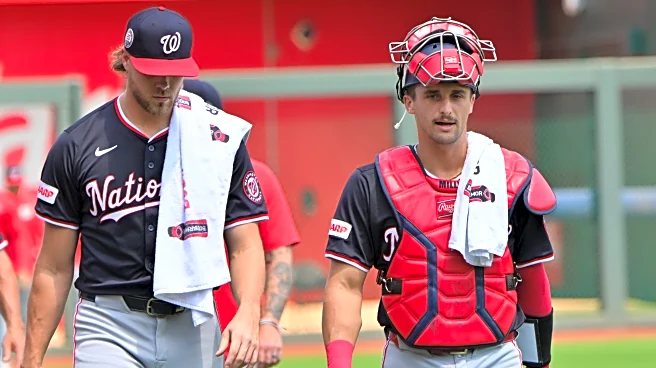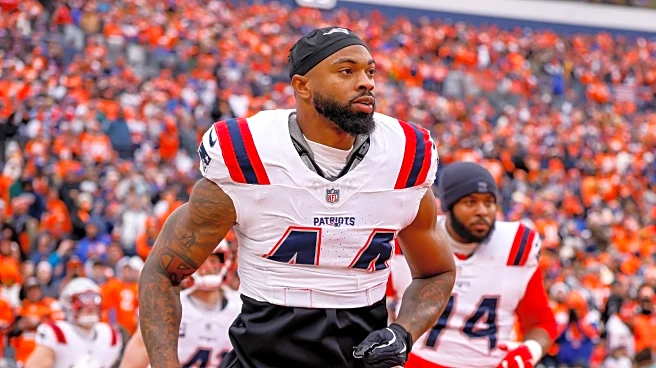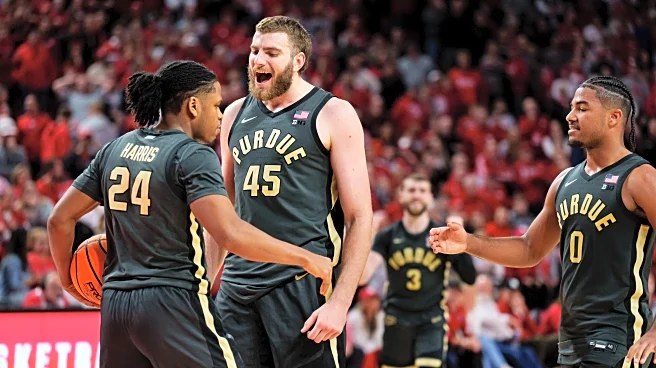The Portland Trail Blazers have a star in the making in Deni Avdija. The versatile forward continues to improve to the point where he may legitimately figure in All Star discussions this season. It’s been a joy to watch his progression from exciting Israeli league prospect, to 9th pick in the 2020 NBA Draft, to the Blazers’ on-court leader over the past 18 months.
While injuries and inconsistent play have hindered the franchise through the early part of the season, Avdija has been the most pleasing
part through the first four weeks. That pleasant feeling is helped along by the fact that he’s on a ridiculously team-friendly deal, descending in value until it expires in 2028.
To put his deal in context, the money is so good that the final three years will be under the projected Mid Level-Exception for that respective season. For a player proving to be one of the franchise’s most important pieces, that is a bargain no matter how you cut it.
But there’s a catch. The fantastic deal might hinder the Blazers from extending him before he hits unrestricted free agency.
Avdija’s Bona Fides
Avdija has been the Blazers’ most important player through the early season, recently serving as the team’s interim point guard to compensate for the roster’s piling backcourt injuries. At 6’9, he genuinely does everything. Through 16 games he’s averaging 25.9 points on 37.0 percent from three, 48.7 percent from the field, 6.7 rebounds, 5.8 assists, 0.6 steals and 0.8 blocks in 34.4 minutes.
Among forwards, he ranks fourth in the NBA in assist rate (diming on 23.1 percent of teammate makes) and eighth in points per shot attempt, registering 1.24 points on every shot. He’s also ninth in block rate, swatting 1.2 percent of opponent shots.
His impact isn’t just in the boxscore. When Avdija is on the court, the Blazers are +16.3 points per 100 possessions, good enough for the 93rd percentile leaguewide. The Blazers are also in the 99th percentile in effective field goal percentage when he’s on the court.
Avdija is a legitimate candidate for NBA Most Improved Player. His ability to make things happen in the open floor is only owned by a handful of his peers. With the way the Blazers theoretically execute their aggressive defense, he should have ample opportunity to put points on the board against unset defenses.
I’m still not convinced he can be the type of player that leads a franchise to a title but he’s a decent number two and an incredible number three.
The Contract Predicament
As mentioned, a year before he arrived in Portland, the Washington Wizards signed Avdija to a descending four-year, $55 million deal, which has him earning $11.8 million in its final year, 2027-28.
But the relatively low-paying contract presents a serious issue for the Blazers when it comes to keeping Avdija long term, given the restrictions associated with veteran extensions. Before we go any further, I should say that the Blazers could have re-structed Avdija’s deal if they were flush with cap room next summer. However, the securing of Jrue Holiday and extensions for Shaedon Sharpe and Toumani Camara have made that difficult.
Avidja becomes eligible for an extension next summer. The first year salary in any veteran extension can be worth up to 140 percent of the final year of the player’s previous deal or 140 percent of the NBA’s estimated average salary in 2028-29, whichever is greater.
In Avdija’s case, the latter will be far greater in year one, which means the Blazers will be limited to offering him somewhere in the early-to-mid $20 million range. For a player as talented as Avdija, that’s not going to cut it. The only other option is letting him get to unrestricted free agency.
The last Blazers All Star that got to unrestricted free agency was LaMarcus Aldridge. Aldridge was arguably the Blazers’ best player and left for the San Antonio Spurs in 2015, breaking the hearts of Portland fans, far and wide.
I’m not saying Avdija will go the same way as Aldridge, but it should not be forgotten. Avidja’s motivations, the makeup of the roster and the context of where the Blazers are relative the rest of the Western Conference, will figure into any decision made. It’s something the front office needs to consider, moving forward.
What’s the optimum return?
I’m not advocating for this, but if Avdija manages to make an All Star team in February, there may never be a better time to move him, assuming the price is right. He’s making $14.4 million this year, which is roughly what next year’s number one overall pick might earn.
If the Blazers had a sense that Avdija might depart in 2028, February’s trade deadline might be the optimum time to pull the trigger with two and half season still remaining on his deal.
In this scenario, interested teams wouldn’t have to give up much as far as money goes. But I can’t see the Blazers wanting anything less than a young player with legitimate upside, someone who could be on an Avdija-type trajectory.
The other, more important, key in any Avdija deal will be picks. Right now, I wouldn’t part with him for anything less than three-to-four first round picks, at least two of which that have a chance of landing in the lottery.
While the trading team will face the same issues in retaining Avdija, they are, in the short-term, getting a near All Star-level talent being paid below the Mid-Level Exception over multiple years as he enters his prime. [ed. Presumably the receiving team would have more ability to re-sign him.]
Conclusion
Obviously, this has been nothing more than a thought exercise, Avdija will almost certainly be one of the Blazers’ key pieces moving forward. While the scars of Aldridge’s departure a decade ago are still real, the circumstances are different.
There’s been no indication the young forward is dissatisfied in Portland and you’d have to imagine the front office has spoken to him about his plans beyond his current deal.
We also don’t know what position Avdija and the franchise will be in three years from now so I think it would be severely premature to just move him now.
While any extension the Blazers can offer will likely fall short, right now they will probably assume that they can re-sign the talented two-way forward when he hits unrestricted free agency in the summer of 2028.















